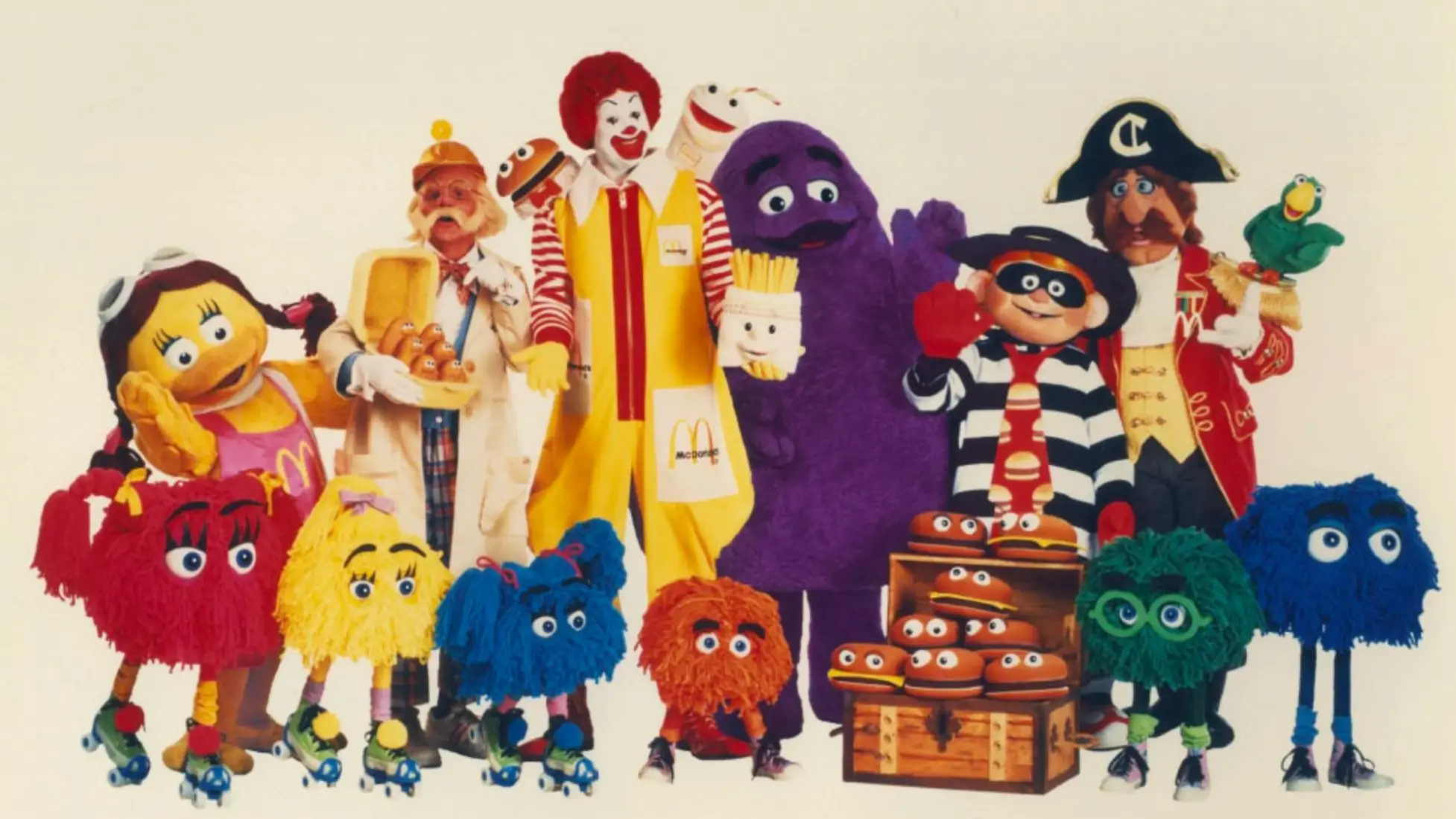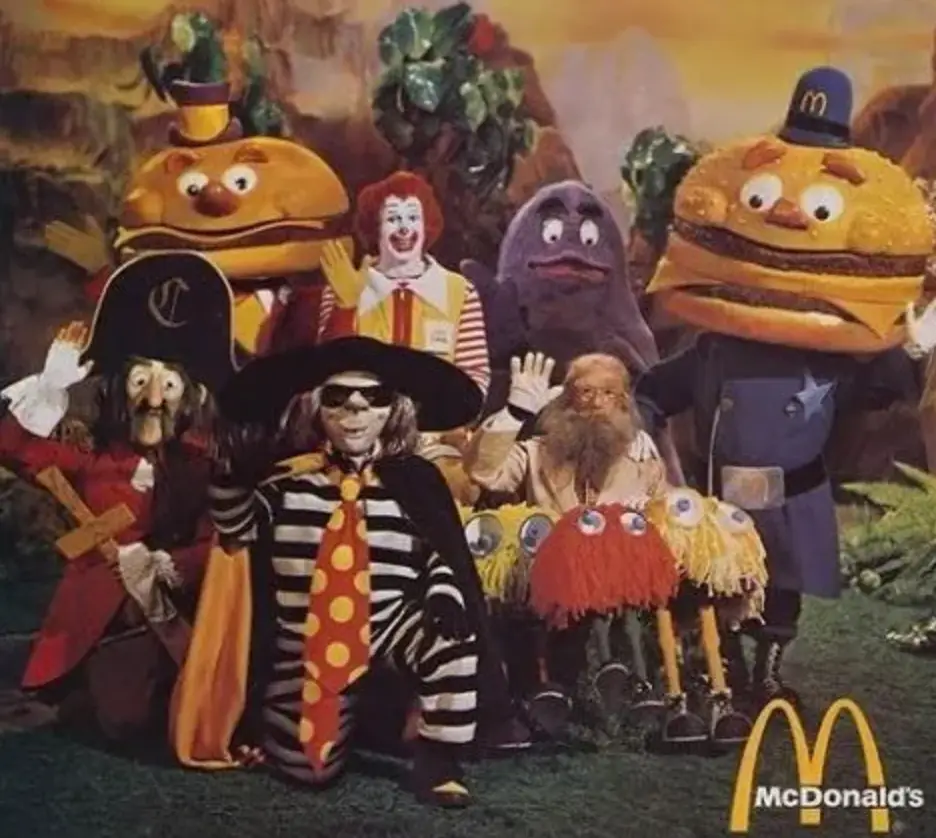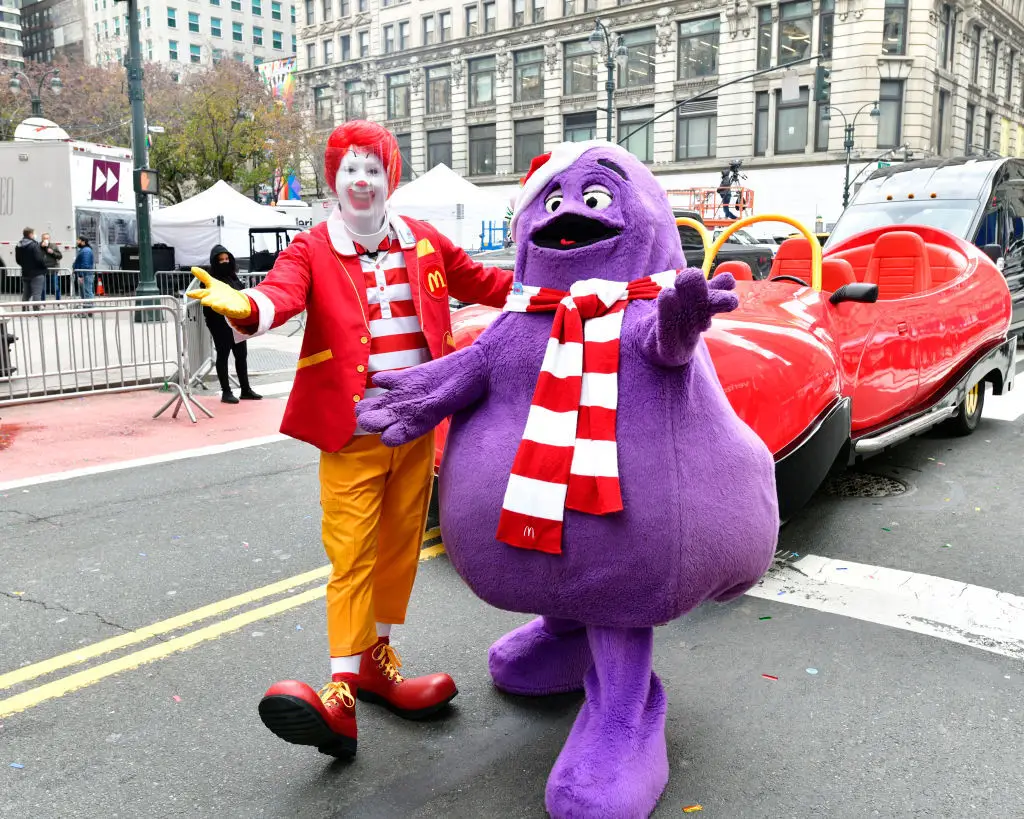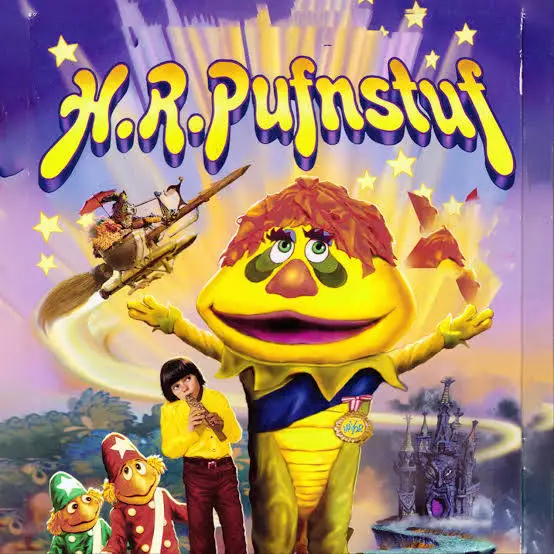
The truth behind McDonald’s famous characters has been revealed now that fans have learned who Grimace is.
If you never knew about the fast-food chain and its characters, then it's your lucky day.
It all began when brothers Richard and Maurice McDonald founded the chain in 1940 in San Bernardino, California.
At the time, it was supposed to be a ‘carhop’ drive-thru, which would be accessible and cheap for diners to grab a quick meal.
Advert
But it soon transformed into a worldwide chain after business-savvy tycoon Ray Kroc saw an opportunity for expansion, and he was right.

In the 1960s, the franchise was booming, and it decided that now was the time to introduce family-friendly mascots to its advertising.
This began with the 'Hamburger-Happy Clown', Ronald McDonald.
After his success, there came the Hamburglar, Birdie the Early Bird, the Fry Kids, the McNugget Buddies, the Happy Meal Gang and Grimace.
'Evil Grimace' was named in 1971, and he was part of the McDonaldland crew along with Mayor McCheese, and fans have only just learned what he was supposed to signify.
Oddly, he’s supposed to be a large anthropomorphic taste bud.

It was all revealed when a McDonald's manager in Windsor, Canada, told CBC News after celebrating being named Outstanding Manager of the Year.
Brian Bates said: "He is an enormous taste bud, but a taste bud nonetheless.”
Now that fans of the chain know about Grimace, it’s time to lift the lid on other characters.
McDonald’s had built up a huge range of characters for its McDonaldland crew, featuring in their TV adverts until they were sued by a brother duo that claimed they had totally ripped off their own show.
H.R. PufNStuf was a sci-fi TV show that ran in the late 60s and early 70s, featuring a gang of strange creatures that showed the difference between good and evil.
It was a big move for TV, as it was one of the first life-sized puppet shows at the time.
Created by Sid and Marty Krofft, it was highly popular.
But the brothers took issue with McDonald’s characters when they noticed something odd.
Mayor McCheese looked a little too close to its loveable dragon HR Pufnstuf.
Even McDonaldland looked too similar to the Living Island concept the show navigated.
This led to a cease-and-desist lawsuit, which the brothers won.
As it turns out, the advertising firm that McDonald’s had hired for their ad campaigns wanted to bring in the Krofft brothers as consultants, but when they dropped them, they allegedly plagiarized their characters instead.

As per the 1977 suit: “Plaintiffs Sid and Marty Krofft Television Productions, Inc., and Sid and Marty Krofft Productions, Inc. were awarded $50,000.00 in their action against defendants McDonald's Corporation and Needham, Harper & Steers, Inc.
“Defendants were found to have infringed plaintiffs' "H. R. Pufnstuf" children's television show by the production of their "McDonaldland" television commercials.”
It claimed that the ad agency proposed a campaign to McDonald's which would be based on the H. R. Pufnstuf characters, and the executive at the food chain wanted to know if the Krofft’s could hop on board.
It said they were in ‘contact by telephone six or seven more times’ and by 1970, the agency confirmed it would go ahead with the idea being based on the TV series.
It was also noted that they’d need to pay the brothers for using the idea, but then, the brothers are alleged to have been called and told the campaign had been canceled- which it had not been.
Instead, it ran without the brother’s permission, and they were not paid.
In the end, they were awarded $50,000 for the copyright infringement, and McDonald’s phased out its characters.
People who found out about the suit online were shocked, but it made sense as to why the brand did away with its concept.
One person wrote on Reddit: “Oh is THAT why so many of the characters fell out of use?
“It’s hard to convince anyone who doesn’t remember the early 90s that McDonald’s had this whole shared universe with way more characters than just Ronald and Hamburgler.”
Another said: "Is this why McDonald's used to look like a colorful (if slightly deranged) wonderland when I was a kid, but is all soulless and corporate-looking now?”
Topics: Crime, McDonalds, Food and Drink, Film and TV, Nostalgia
